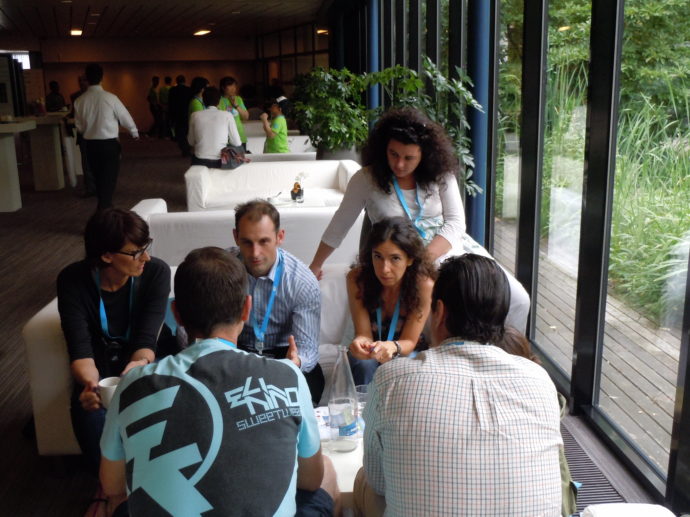We are at a pivotal moment for Sanfilippo and the continued evaluation of the soy derived molecule, genistein. While this molecule has been shown to be active in reducing neurodegeneration in preclinical mouse models, so far clinical studies in humans with low concentrations of the natural product have not been successful in showing any clinical impact (other than lowering GAGs and heparan sulfate). The recent announcement of a 1 year Phase III, Double Blinded, Randomised, Placebo Controlled Clinical Trial of High Dose Oral Genistein Aglycone in Patients with Sanfilippo Syndrome (Mucopolysaccharidosis III A, B and C) – GENiSIS2013, is the next make or break trial for this compound. This trial will recruit patients at the University of Manchester in early 2014 and will have robust efficacy and safety endpoints. The trial may finally definitively answer the question whether genistein is a potentially useful drug for Sanfilippo. And if the trial is successful in showing clinical improvement in patients, it may obtain registration approval directly thereafter. And that of course may mean that it reaches patients quite promptly. If it does, it will become the first treatment approved for Sanfilippo.
However, there are many “if’s”. As we know from many other therapeutic areas, a mouse model of a disease does not always extrapolate well to the human disease in question. The drug may be metabolized differently by people and so responses across a trial population may differ widely, and this may make interpretation or analysis of a significant effect difficult. These issues could also explain why no significant clinical effect was seen previously with genistein.
Dr. Brian Bigger, who is leading this trial regulated by the UK MHRA and performed at the NIHR/Wellcome Trust Clinical Research facility in Manchester has produced two videos that describe the trial in very straightforward balanced terms and are well worth the few minutes to view them: http://bit.ly/Genestein1 and http://bit.ly/Genestein2
A press release for the trial is also available HERE. We will in due course look forward to providing the results of this trial and so we hold our collective breath for a successful outcome.


